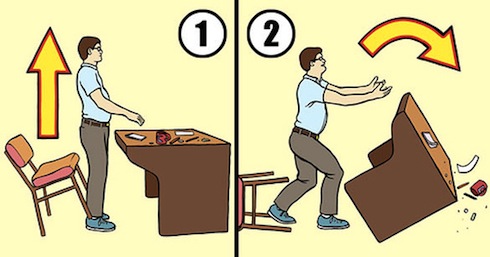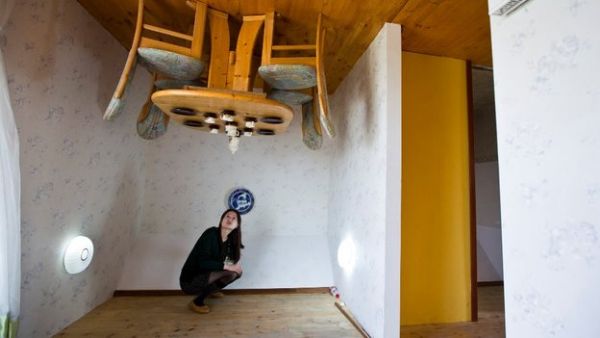Every time you set foot in a busy restaurant there is a secret conspiracy going on behind closed doors, a synchronized and covert operation, designed to encourage you to finish your meal as soon as possible. There’s a good chance you didn’t notice because hospitality professionals are masters of deception. Fine dining has become a culinary shell game, distracting you with flamboyant presentations and table-side theatrics, while your next course is being fired against your will.
It’s a delicate balance, but we’re trained to hug you so tightly you won’t notice you’re suffocating. Pay closer attention next time you dine out and you might notice a more aggressive push to take the order, ever-shortening intervals between courses, and your bill arriving to the table before you ask for it. These developments violate time-honored tenets of hospitality but, in many cases, they have become necessary evils.
The fact is many restaurants can’t afford to wait for you to order at your own pace, to pause in between courses or even to ask for the check at your leisure. There is a new economic reality in the restaurant business where growth is impeded by skyrocketing rents, ballooning labor costs and cutthroat competition. Making guests feel welcome cannot be unconditional anymore.
A recent article by a San Francisco restaurateur, whose restaurant Tawla prematurely closed, outlines some of the new challenges the industry faces and warns of danger ahead. Many of these external pressures—higher minimum wages, health care costs, talent drain—are uncontrollable so owners focus on internal elements to protect profitability. Raising prices is always a last resort and can alienate clientele. More aggressively turning tables, on the other hand, is a stealth way to increase revenue without charging more. Since we can’t just add tables, we need to seat more people at the tables we have. The goal becomes offering guests a great experience but delivering it in a shorter window of time.

Chefs have redesigned their menus for speed, prioritizing alacrity over precision. The trend toward small plates, not coincidentally, has contributed to shortening turn times and increasing cover counts. Instead of grouping dishes into courses, they trickle out out of the kitchen as they’re ready. Dining experiences have become more anxious. Waiters hover over your table as you consider the menu. Busboys bully-clear your plates. Dessert is on the verge of extinction with fewer options to expedite the decision-making process and clear the path for payment and departure.
This existential threat has forced the industry to question its traditional ways of defining hospitality. The new rules of engagement require guests to make bigger sacrifices. Many restaurants refuse to seat your party incomplete because doing may increase the aggregate time you monopolize the table. They also may not allow you to place your order piecemeal because they can’t afford to forfeit control of the pacing of your meal. If someone joins you in the middle of your main course, management may deny them the menu in the event that adding a new dish would delay your returning the table. Attempts to order more cocktails after dessert may be rebuffed or you will be asked to drink them at the bar.
Popular restaurants have had to cinch the waist on their reservation systems—booking more tables with shorter projected turn times. Even in fine dining, you’re rarely allotted a table for more than two hours. No one will tell you this officially but everyone will be working in concert to keep you on schedule. Weekday nights, there is a tremendous amount of pressure to expedite the first tranche of tables to ensure the second wave seats promptly. On weekends, there may be a third seating. Any problems turning tables early in the night can have a domino effect throughout service.
Restaurant management has become less apologetic about needing your table back. They obsess over cover counts because they have become the leading indicator of growth. Pre-shift meetings have become increasingly dogmatic about table-turning, often at the expense of honing service. On the whole, the industry is collectively less sympathetic toward guests who feel rushed and less tolerant of guests camping after the check has been paid. The thought of asking someone to get up used to be unthinkable for a restaurant manager. It isn’t anymore. ‘Can we get you anything else?’ is no longer a courtesy. It’s an ultimatum. Speak now or forever hold your check. Saying you don’t need anything else has become de factopermission for us to present the bill.
As hospitality norms erode, purists will cry foul. They’ll tell you restaurants that forsake their guests will lose business. It’s a risk—hard business decisions have consequences. But this is no time for unicorn ideology about good service. Our industry’s survival depends on embracing a new paradigm. As input costs skyrocket, accepting the status quo will only lead to more restaurants closing their doors. Foodies can scream till they’re blue in the face about their right to occupy the table as they want, but without their willingness to compromise, in the future, there may be no restaurants left for them to enjoy on their own terms.

